NHS actually a National Sickness Service - expert
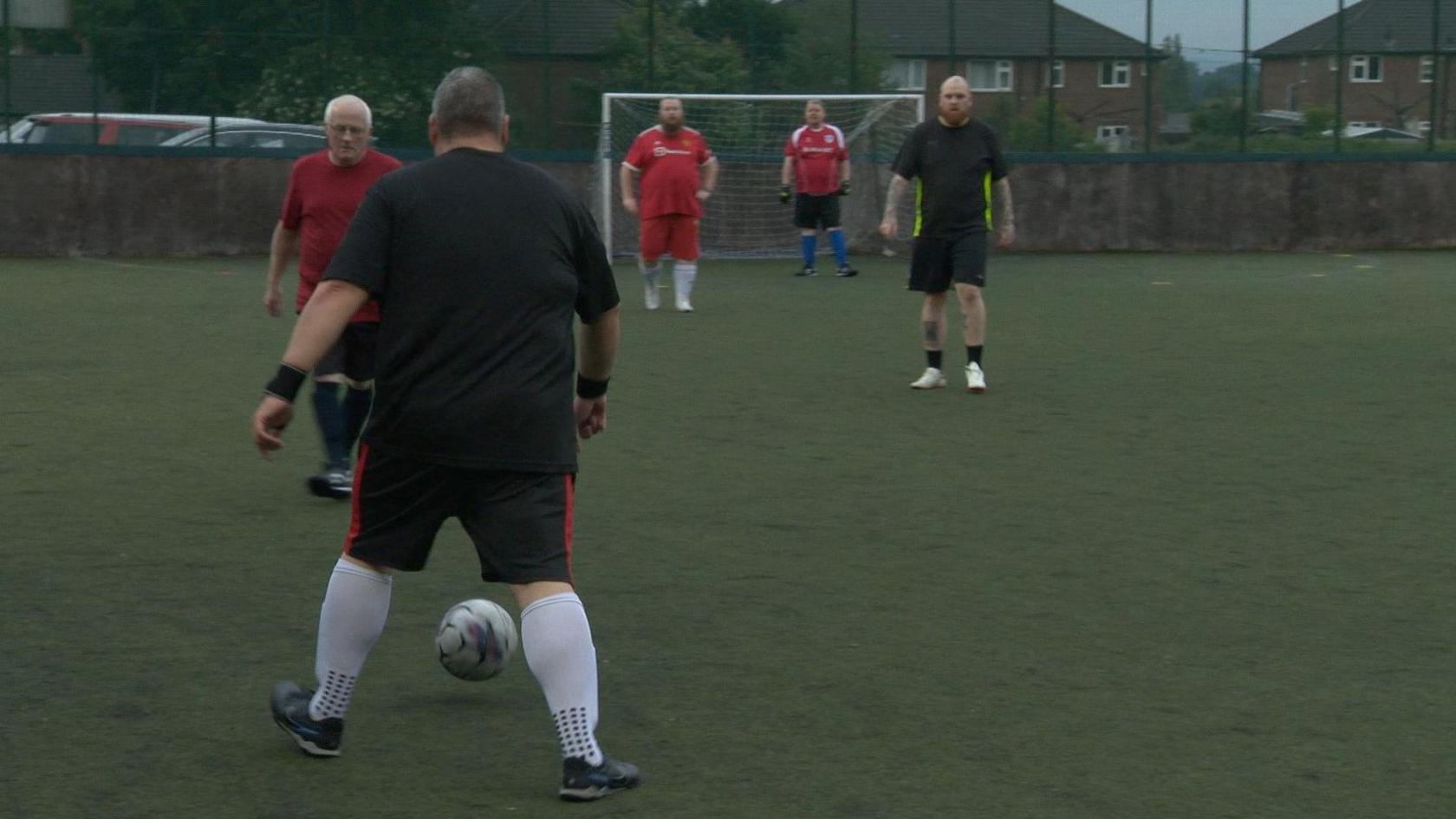
Bury Council funds weekly football sessions as part of a drive to reduce obesity
- Published
In a small room behind the bar, a group of men in shorts and T-shirts lines up to be weighed.
"Point five off - well done!" says the assessor, approvingly, much to the relief of the man on the scales.
This is a Tuesday night session at the Bury branch of Man v Fat, a national network of clubs which helps men lose weight through football sessions.
"We’re here every week," says coach Stuart Normansell. "The guys weigh in every week, we give them some lifestyle guidance and advice and then they play football for 30 minutes.
"They’re part of something that’s heathy, that’s bigger than themselves. It’s a real community feel as well."
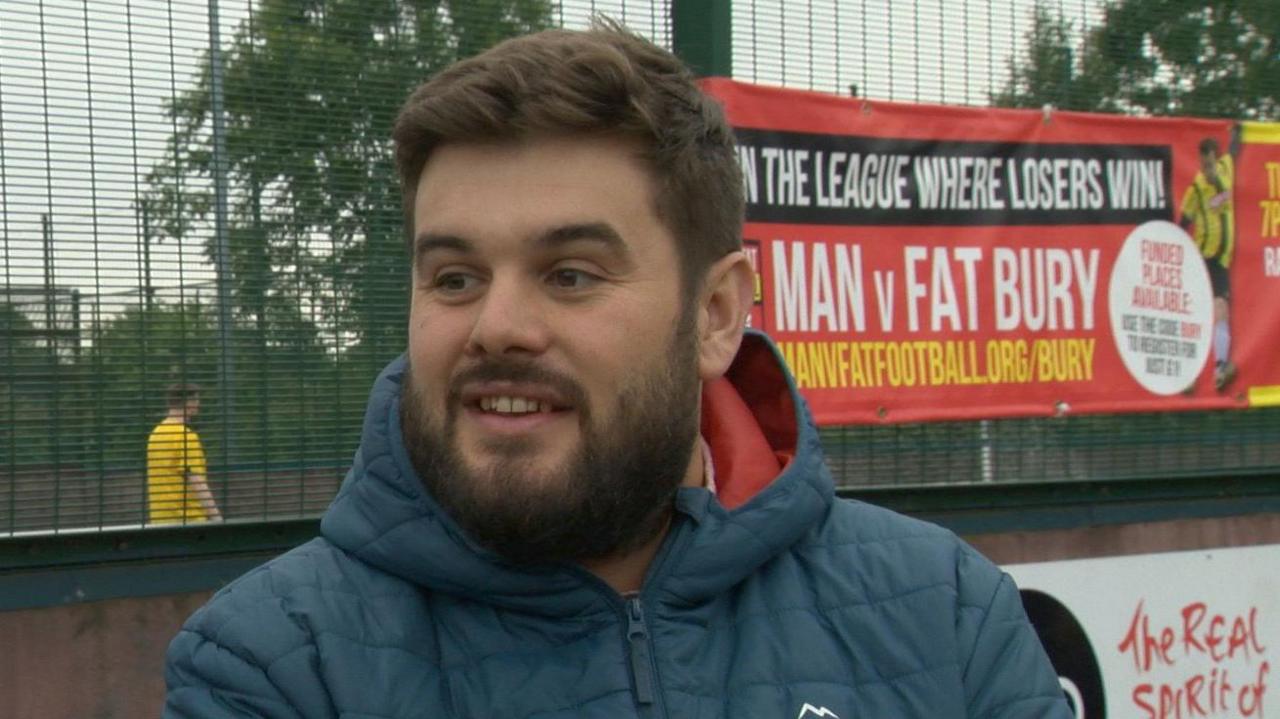
Matt Andrews says he's lost about 10% of his body weight through the scheme
Matt Andrews is taking part in the sessions at Radcliffe FC’s ground to get into shape for his wedding.
"I’ve always been a big lad and I’d never really weighed myself," he tells me. "I came here to get involved in a team sport because I really wanted to do something and meet people."
It's working well for Matt - to date he has lost two stone (about 12kg).
Lee Earnshaw, who has already shed three stone, says he joined so that he can better keep up with his three-year-old son.
"I found out about this place and found out that Bury Council are actually funding places here for us as well," he says.
The local authority pays for the first 14 weekly sessions as a public health initiative.
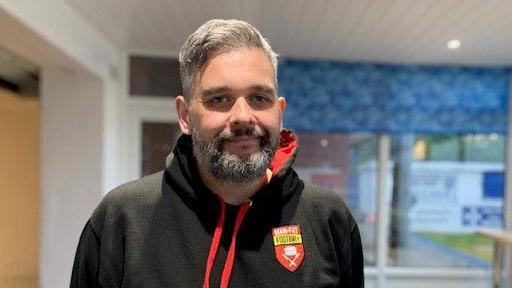
Coach Stuart Normansell uses football and team camaraderie to help men lose weight and become fitter
Here in the north west of England, more than a quarter of adults are now classed as obese.
Nationally, it is quickly becoming the leading cause of preventable deaths, as well as costing the NHS £6.5bn a year.
Our population is also getting older, with more long-term sickness than ever.
The increased demand on the NHS, still catching up post-pandemic, means most resources are inevitably directed to solving each crisis, rather than looking at making fundamental public health improvements.
Ultimately, it’s not only better for the NHS to have us all fit and well, but far cheaper for the country too.
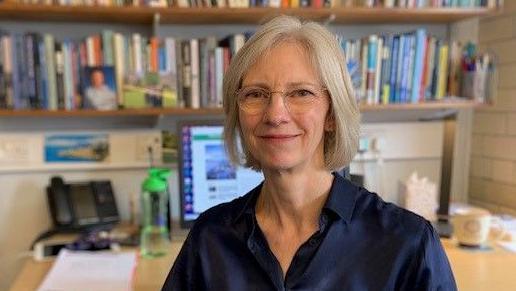
Professor Sally Sheard is executive dean at the University of Liverpool's Institute of Population Health
Professor Sally Sheard, of the University of Liverpool's Institute of Population Health, says: "What we have is not a National Health Service - we have a National Sickness Service in the UK.
"It’s never had enough resources. There have been times when we’ve managed it really well, but over the past 10 years we’ve not put in as much money as other countries and now we’re seeing the impact of that.
"We have longer waits, we have issues with getting GP appointments, we have crises where we see ambulances queuing outside hospitals for access to A&E."
Hospital waiting lists may have gone down from their peak last autumn but they’re still huge.
In April this year just 54% of patients in the North West were seen within the national target of 18 weeks. Nearly 52,000 have been waiting a year or longer.
And then there’s A&E.
In May 2014 no-one in the region waited longer than 12 hours there to get a hospital bed.
Ten years later, 10,344 people had to lie in corridors and side rooms for longer than half a day, waiting for space in a ward. Some even waited days.
'So busy'
Back to the training session where and Mike Day tells me it’s his first time back at the club since he tore a tendon, which resulted in him going to a nearby urgent care centre.
"I got there at 6 o'clock at night and never got home until 8 o'clock in the morning," he remembers. "I never got seen for about seven-and-a-half hours. It was just chaos."
Mike, who said previous experiences at the hospital had been good, didn't blame staff because "it was just so busy - and you could see they were understaffed".
He thinks the NHS "needs more money and more staff".
Matt Andrews, meanwhile, has been to the past few weigh-in sessions on crutches.
He ruptured his Achilles tendon while playing football and had to go straight to Rochdale A&E.
He says his experience was completely different from Mike's.
"It was amazing - I was in and out within the hour," he tells me.
"And then the next morning I got a call at 8 o'clock to say 'Don’t have your breakfast' and by 10 o'clock I was in Oldham hospital and by 3 o'clock I’d had my operation."
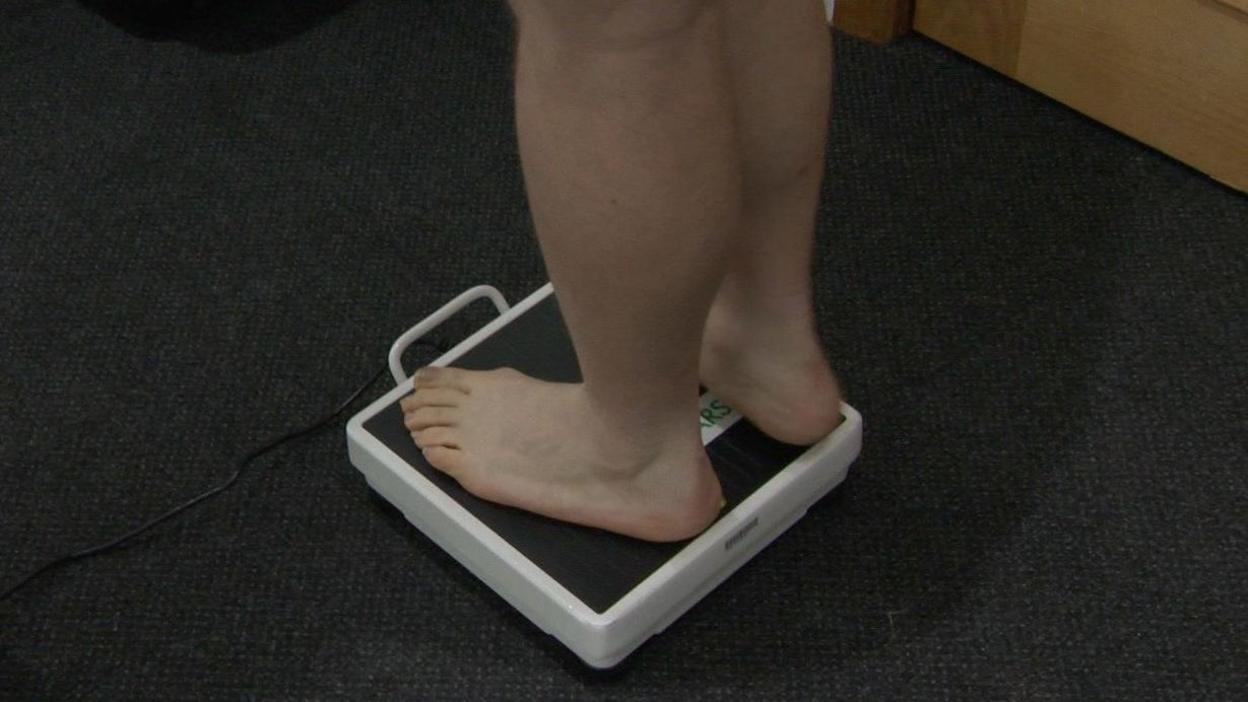
Members of the Man v Fat club have a weekly weigh-in before playing football
Amid pessimistic headlines it is worth remembering that the NHS does successfully treat millions of people every year.
Its continuation is near the top of virtually every voter’s wish list.
But tackling its challenges needs cash - a lot of it at a time when we're told it is in short supply.
Professor Sheard said whoever won the election would not only need to invest more into the NHS but also look at schemes which reduce demand for its services.
"Unless the next government commits to a radical restructuring in funding and moves money away from the traditional areas into things like prevention," she says, "we’re not going to address the fundamental problems which stop people getting sick."
Back at the Bury branch of Man v Fat, the players are heading home.
Coach Stuart Normansell says that, between 60 players, they've so far lost an impressive 293kg.
In these games, everyone's a winner.
The question is how can the next government be equally successful when it comes to healthcare for us all?
Listen to the best of BBC Radio Manchester on Sounds and follow BBC Manchester on Facebook, external, X,, external and Instagram, external. You can also email your story ideas to northwest.newsonline@bbc.co.uk